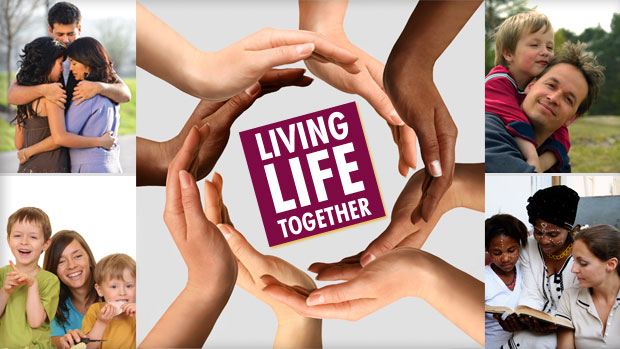Our Life Together
In 1st Thessalonians, as each chapter ends, we see Paul’s
reminder that Jesus is coming again. First, he affirms and encourages their
faith, then he challenges them to grow in righteous living on the basis of this
truth – Jesus is coming again. We who have trusted in Christ have nothing to
fear when he comes again. However our proper response to this prophecy is for us
to note, as Paul reminds the Thessalonian Christians, there is a practical side
to it. Christians are to live as children of the light, not children of the
night. In I Thess 5:25-27, we can see some practical examples we are to apply
to our life together to help us grow as a people of God awaiting Jesus’ return.
Intercessory Prayer (5:25).
In the early Christian Church, prayer was a very most important practice. It
should also be so in the life of every church. As every church faces challenges
and pivotal moments, prayer should be of prime importance in the life of every
believer. Acts 4 teaches us that corporate prayer unleashes the power of God.
Paul, the Christian leader and apostle, needed the rank and file believers to
pray for him. He knows that church leaders too are human and prone to sin. Surely
we too can emulate this example. Satan desires to bring God’s church down and
dishonour God and what better way than by bringing the leader down thereby
stumbling many other people. Therefore, we too must pray together to ensure our
leaders stand firm, people grow and the church prospers in its mission to build
God’s Kingdom.
Fellowship with one another
(5:26). What is our immediate reaction when worship ends? Do we quickly gather our children and leave
hurriedly for lunch and for the day’s errands?
Paul here reminds us that we are to spend time to get to know each other.
In those days, the men would greet the men with a kiss and likewise the ladies
with one another. I guess our modern application is that we should shake hands
and take the time to fellowship with one another, especially those that are new.
In 1 Thessalonians, Paul calls them “brothers” about seventeen times. They were
family and so are we. What does a family do but spend time with one another.
Our vertical relationship with God should translate into a horizontal
relationship with our fellow believers. So we should make efforts to someone we
do not know. Make friends with them and tell them we look forward to seeing
them next week. There will always be people around who do not mind our
fellowship.
Read the scriptures
(5:27). Paul charged that this letter be read to the Thessalonian Church. He
also gave the same instructions to the Colossian Church and these letters are today
part of our canon of Scripture, God’s inspired Word to us. In this letter, Paul
had written on some very important matters and so he instructs the
Thessalonians Church to read it out when the church gathers in worship. The
Word of God governs our life. It is the most important thing in our spiritual
lives and we must always ensure that it is read and it is taught in our
churches.
Blessings (5:28).
Paul ends his epistle with a simple prayer: “The grace of our Lord Jesus Christ be with you. Amen" (v28). Grace
is the means by which God’s goodness like peace, salvation, forgiveness,
maturity stirs in our hearts and enable us to follow him – it is all grace.
The Christian life is not a list of do’s and don’ts although
in his letter to the Thessalonians, Paul has mentioned many specific
responsibilities for every believer in the local church. But behind all the
instructions and commands, lies the question, “what is our main priority in
life?” On reflection, I think the key word here is submission. Are we willing,
as children of a loving and kind Heavenly Father, to submit to His Will, to
accept that he knows what is best in our lives and live lives that will please
Him? If we can accept this, then his
instructions to us are not burdensome and we will eagerly look forward to what
God is telling us to do.


Comments
Post a Comment